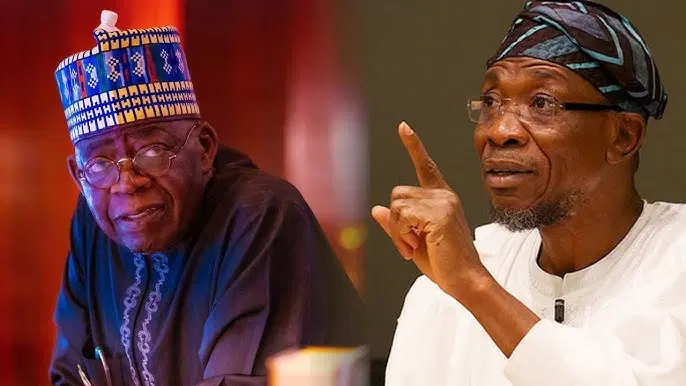A significant political realignment is underway in Nigeria as opposition forces consolidate under the African Democratic Congress (ADC), with prominent figures including former Osun State Governor Rauf Aregbesola and political economist Prof. Pat Utomi rallying support to challenge President Bola Tinubu’s reelection bid.
Aregbesola Leads Charge for Opposition Unity
The ADC’s interim secretary, Ogbeni Rauf Aregbesola, declared at a stakeholders’ meeting in Akure that the coalition possesses the strength to defeat the ruling All Progressives Congress (APC) in the 2027 elections. The former interior minister, once a key Tinubu ally, urged party members to prioritize collective victory over personal interests, stating, “If we unite, we won’t be defeated.”
Aregbesola revealed that the ADC has secured backing from major opposition figures, including former Vice President Atiku Abubakar and Labour Party’s Peter Obi, who reportedly view the party as a viable platform for a united front against Tinubu. His call for unity comes amid efforts to integrate multiple opposition parties, with 10 political parties already participating in coalition discussions.
ADC Leadership Reassures State Chairmen
The party’s interim national leadership moved to quell internal dissent during a meeting with 37 state chairmen in Abuja. Interim National Spokesman Malam Bolaji Abdullahi dismissed claims by the ADC’s 2023 presidential candidate Dumebi Kachikwu that the coalition violated party rules, asserting, “We are on solid legal ground.” Kingsley Ogga, chairman of the ADC Forum of State Chairmen, confirmed widespread support for the coalition-building process among state chapters.
Utomi Endorses Coalition, Criticizes Defection Culture
Political economist Prof. Pat Utomi lent his weight to the opposition movement while condemning Nigeria’s rampant party-switching by politicians. At a shadow government retreat in Abuja, Utomi argued that defections reflect “poor understanding of political culture and ideology.” He urged coalition members to focus on governance capacity rather than electoral ambitions alone, warning, “We’re cheering as the country is dying.”
Presidency Dismisses Opposition Threat
The Tinubu administration downplayed the coalition’s potential, with Special Adviser on Information and Strategy Bayo Onanuga declaring on Arise Television that *”there is no way”* Atiku and Obi could defeat Tinubu even if combined. Onanuga cited the president’s northern appointments and achievements as electoral advantages, asserting the opposition was “jumping the gun” by initiating politicking this early.
Growing Opposition Momentum
The ADC’s strategy appears focused on capitalizing on widespread economic discontent, with speakers at the Akure event decrying Nigeria’s *”titanic situation”* of hunger, insecurity, and infrastructure collapse. Akin Akinbobola, a former aide to ex-Ondo Governor Olusegun Mimiko, predicted the movement would grow into *”a tsunami sweeping around the state.”
As Nigeria’s political landscape reshapes nearly three years before the next general elections, this opposition consolidation represents the most organized challenge yet to Tinubu’s APC. However, the coalition faces significant hurdles in maintaining unity among diverse political interests and countering the ruling party’s institutional advantages. The coming months will test whether this alliance can transform from rhetorical opposition into a credible electoral alternative.

Leave a Reply